High-tech ticket to ride for the connected generation
Updated: 2016-11-04 12:20
By Haky Moon For China Daily(China Daily USA)
|
||||||||
The eager and early adoption of travel-related technologies has enabled Chinese outbound tourism to leapfrog more developed markets, attendees at a leading tourism forum were told.
At the Global Tourism Economy Forum in Macao, held on Oct 15-16, influential businesspeople, government officials and academics gathered to discuss how different industries can capitalize on tourism.
A major talking point over the two days was how new technology is changing the face of the global tourism industry. To a greater extent than most other groups of travelers, Chinese are taking advantage of this technology to customize their travel plans, find destinations and purchase exclusive experiences.
The tourism sector is continuing to shift from an offline to an online business model, driven by user-generated content and away from traditional marketing techniques.
And millennials - broadly defined as those born between 1980 and 2000 - have quickly embraced all the new approaches.
As a result, the travel industry serving outbound Chinese tourists has sped forward and surpassed many of its counterparts elsewhere.
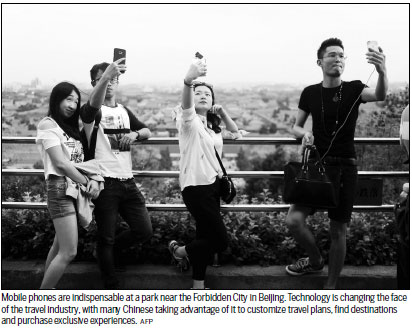
Technological change is making it possible for tourists to go beyond standard approaches to travel, savoring experiences that may have been out of their reach in the past. This has allowed businesses that make the link between tourism and technology to grow exponentially.
"We have 350 million pieces of content on the site, and 255 pieces coming to our site every minute. That tells you how technology has enabled us," said Helena Egan, director of industry relations at US-based TripAdvisor, the travel website billed as the world's largest.
Today's travelers have needs "in terms of innovation, comfort, freedom to feel emotions, to share", she said.
Nasdaq-listed TripAdvisor has grown exponentially over the past decade by focusing on technology in the travel industry exclusively.
"The main difference is that we really focus on how to grow profits, and how to use digital marketing in the tourism industry," Egan said.
TripAdvisor's popularity index - its own ranking system, fed by traveler reviews - is always based on user-generated content, she said. "We have to follow the trends. Our personalization is created just for the user."
Travel professionals are taking advantage of opportunities in a range of areas, including the internet, mobile devices, wearables, augmented and virtual reality, and in the sharing economy.
New platforms to cater to the specific needs of travelers are here to stay. The evolution of the sharing economy, in particular, is redefining tourism. Examples of it are everywhere, from taxi-sharing apps to home-stay networks.
Didi Chuxing, a ride-sharing company that provides services to 300 million users across 400 Chinese cities, has beaten the global leader Uber in China. In August, Uber's China unit was acquired by Didi in a deal reportedly worth $35 billion.
"We are a very young internet company," said Ling Kang, Didi's senior director of government relations. "We believe travel and daily commutes can be combined."
Tapping the tourist market, as well as daily customers, will be made easier as the company's approach to its business adapts and evolves. Going forward, Didi is likely to shift away from being strictly a ride-sharing company.
"Didi now has millions of users each and every day. In the future, Didi will develop into a high-tech big-data company," Kang said.
Chinese tourists have become more affluent than ever, increasingly well-educated and aware of their options. Travelers who were once typically destined for Hong Kong are now exploring myriad destinations across the globe.
Now, more than ever, tourists know their own wants and needs. For example, travelers within China are increasingly looking at the Didi platform to book trips by arranging carpools.
For the time being, Didi has no plans to evolve as a one-stop shop for travelers but is focusing on all aspects of transport.
Mario Hardy, CEO of the Pacific Asia Travel Association, notes that "technology will only be a tool" to assist travelers in creating new experiences.
As millennials are the first generation to grow up with the internet, this means they are also the first generation of native users of e-commerce, online reviews and social media. Always connected, they seek constant interaction during their travels.
Combined with the rise of the internet-powered sharing economy, this has widened the range of experiences and destinations on offer. Peer-to-peer platforms - such as Airbnb or Didi - are rapidly moving into new sectors and linking services. It is possible for travelers to plan entire trips using these platforms.
The new technology options available to travelers everywhere are helping speed the phenomenal growth of tourism in China.
"Technology adds efficiency," said Lug Giroud, co-founder of Hong Kong-based digital business marketing agency Wild at Heart. It allows tourists to reach their individual travel goals with greater ease.
"There are lots and lots of improvements in terms of technology as a way to push marketing," Giroud said. "Most automated price comparisons for airlines are only going to give you cheaper prices."
Setting businesses apart in the future will be the ability to bring value to users, not just sell the cheapest tickets or hotel rooms.
For car rental company Avis, tapping into the sharing economy is a natural way forward, said Angeline Tang, director of Asia sales and marketing at Avis Budget Group.
Avis recently acquired American car-sharing company Zipcar, which gives subscribers access to a pool of vehicles for short-term use, usually a few hours at a time.
"In certain aspects, for practical reasons, the sharing economy will work and will be here to stay for a long time," Tang said. "We brought in technology," she said, drawing attention to the importance of "integrating current business with technology".
Technology is already making it possible for individual travelers to do, with ease, much of the work that travel agencies did previously, such as crafting and personalizing tours.
The successful businesses will be those that can meet the demands of increasingly savvy tourists, and this is likely to require more efficient and effective use of the big data collected from hundreds of millions of pieces of user-generated content, said Egan of TripAdvisor.
And the prospect of service from robots is not too far off.
"Robots will be able to become your travel agent," said Giroud of Wild at Heart.
However, complete replacement of the "human touch" is unlikely anytime soon, especially when it comes to travelers in crisis.
For the time being, robots cannot completely overtake the power of human knowledge. Artificial Intelligence has come a long way in recent years, but it is not yet able to provide the perfect answers for every tourist experience.
"The trend of technology changing the travel experience is going to be the same in the next 50 years, in a way that there will be more and more innovation. While humans will use these new technologies, they will still be craving authenticity," Giroud said.
A case in point is Airbnb, where the host and traveler make contact through technology.
- Summit of Climate Conscience kicks off in Morocco
- British Airways announces special fares for New Year
- S. Korean president says to accept investigation over scandal if necessary
- Names of twin panda cubs born in Austrian zoo revealed
- May's Brexit plans thrown into chaos by landmark court ruling
- Syrian army announces 'humanitarian pause' on Friday

 Ten photos from around China: Oct 28- Nov 3
Ten photos from around China: Oct 28- Nov 3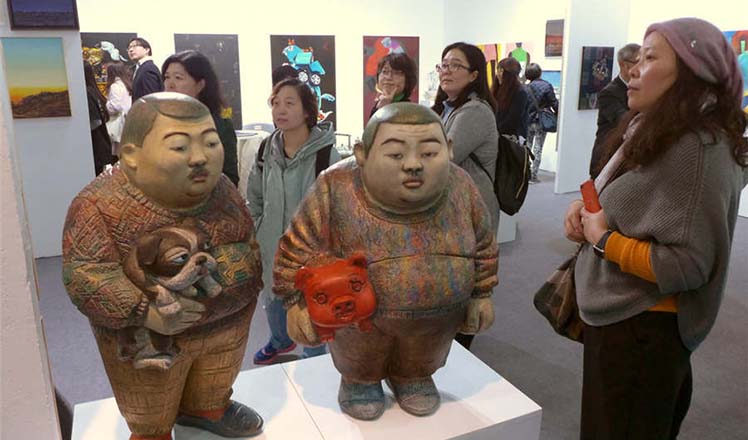
 Shanghai Art Fair connects people with art in daily life
Shanghai Art Fair connects people with art in daily life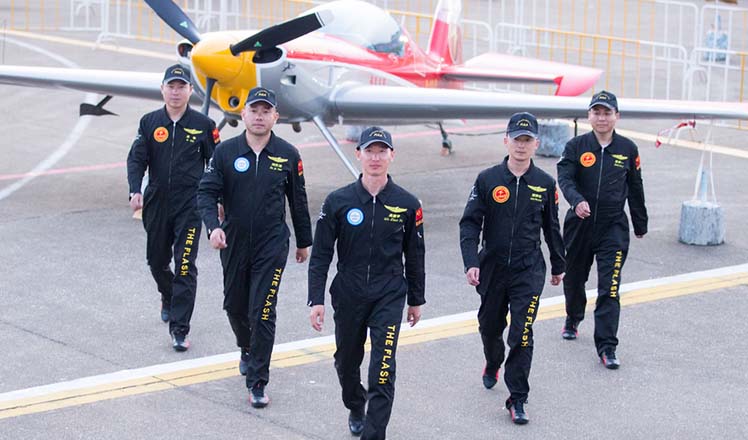
 Chinese captain takes off at Air Show China in Zhuhai
Chinese captain takes off at Air Show China in Zhuhai
 Wuzhen Internet Intl Conference Center under preparation for 3rd WIC
Wuzhen Internet Intl Conference Center under preparation for 3rd WIC
 China's top 10 post-80s self-made billionaires
China's top 10 post-80s self-made billionaires
 Famous paintings recreated with chocolate
Famous paintings recreated with chocolate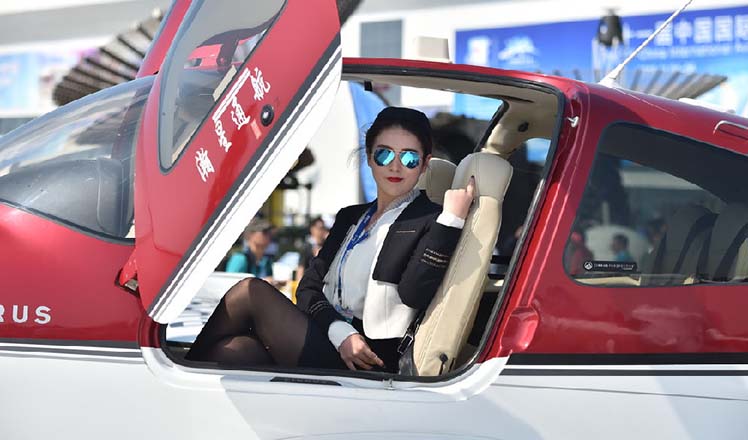
 Looking for a ride?
Looking for a ride?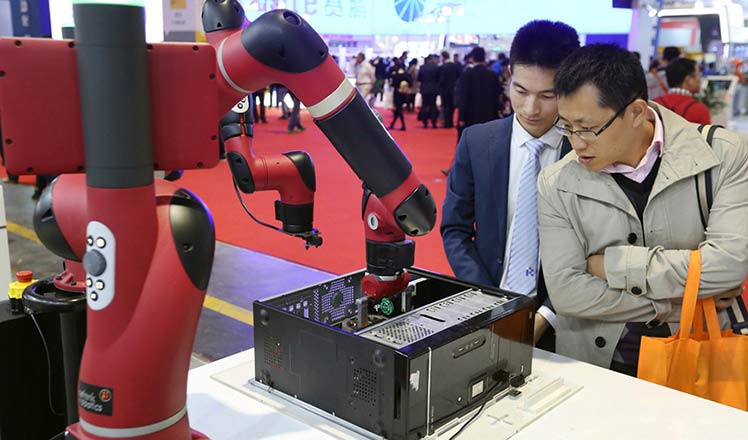
 Robots draw people to China International Industry Fair
Robots draw people to China International Industry Fair
Most Viewed
Editor's Picks

|

|

|

|

|

|
Today's Top News
US election rhetoric unlikely to foreshadow future US-China relations
'Zero Hunger Run' held in Rome
Trump outlines anti-terror plan, proposing extreme vetting for immigrants
Phelps puts spotlight on cupping
US launches airstrikes against IS targets in Libya's Sirte
Ministry slams US-Korean THAAD deployment
Two police officers shot at protest in Dallas
Abe's blame game reveals his policies failing to get results
US Weekly

|

|







